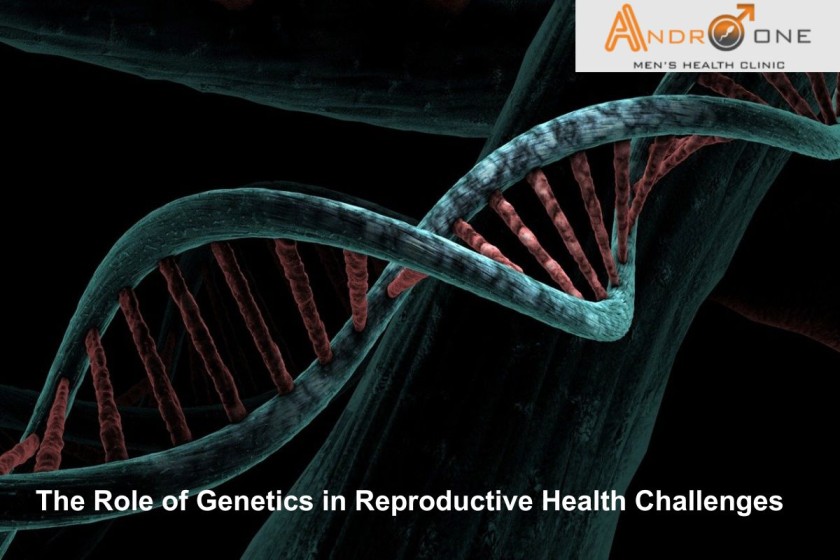The Role of Genetics in Reproductive Health Challenges
Reproductive health is an important aspect of general well-being. Genetic factors play a significant role in determining fertility and the likelihood of reproductive health challenges. Understanding these genetic influences is vital for individuals and couples facing fertility issues. This article will explore the role of genetics in reproductive health challenges and how it impacts both men and women. Genetic Factors in Male Reproductive Health Genetics can impact male fertility in multiple ways. Many reproductive problems in men are related to genetic disorders. For example, chromosomal anomalies such as Klinefelter syndrome can cause decreased sperm count. Such genetic diseases can cause infertility and may need medical intervention from Experts in Andrology and Men’s Health in Tamilnadu. Additionally, the microdeletion of the Y chromosome constitutes another common cause of infertility in males. The latter may be affecting the gametes produced. Therefore, in the case of this condition, the help of the Best Andrologist in Salem in the treatment would become essential towards improving reproductive health. Genetic Factors in Female Reproductive Health Genetic factors also play a vital role in female fertility. For instance, chromosomal abnormalities can interfere with ovarian function, like Turner syndrome. This will make it challenging for the woman to conceive naturally. Additionally, genetic defects that may cause abnormalities of hormone production or abnormalities in the uterus may prevent the woman from carrying a pregnancy. Another factor is age, which is also influenced by genetics. Women with a history of early menopause in the family may decline earlier compared to others. However, early recognition of these risks can guide women to take proactive steps to maintain their reproductive health. Inherited Disorders and Reproductive Health Inherited genetic disorders can significantly impact reproductive health. Conditions like cystic fibrosis or sickle cell disease may reduce fertility in both men and women. Therefore, these genetic disorders affect the reproductive system, making it more difficult to conceive. Cystic fibrosis can also lead to male infertility, caused by a blockage in the vas deferens. In women, genetic diseases may impair either the quality of the eggs or ability to carry a pregnancy to term. Moreover, genetic counseling informs patients about their risks so that they can make better reproductive choices. The Impact of Genetics on IVF Success IVF has helped countless infertile couples. Genetic issues, however, can lead to the failure of IVF. Genetic tests for embryos are now routine. This ensures that the least unhealthy embryo is implanted during a procedure. Therefore, genetic testing of embryos does significantly reduce the risk of miscarriage and increases chances for a successful pregnancy. Furthermore, genetic screening is also capable of revealing inherited disorders that may be transmitted to their offspring. For couples with a family history of genetic disorders, this type of testing would be extremely beneficial in preventing such disorders from being passed on to future generations. Genetic Testing and Counseling Genetic testing and counseling are critical tools in dealing with the reproductive health problem. Genetic testing can trace a specific factor that can contribute to infertility. Examples of such factors include testing for chromosomal abnormalities, gene mutations, or the carrier status of certain genetic disorders. Additionally, genetic counseling can help individuals and couples understand the implications of genetic testing results. A trained counselor can guide them through their options, including fertility treatments, IVF, or adoption. If you’re experiencing reproductive health issues, consulting with a skilled andrologist or sexologist is important. The Best sexologist in Namakkal or an experienced Andrologist in Tamilnadu can offer guidance tailored to your needs. Treatment Options for Genetic-Related Reproductive Challenges There are various treatments that can be done on the genetic-related reproductive challenges. For men with genetic infertility issues, retrieval of sperms through techniques like sperm aspiration can help to obtain sperms that will be used in assisted reproductive technologies such as IVF or ICSI. However, women might receive fertility treatments, for instance, ovulation induction or egg donation. Besides that, genetic screening during IVF can ensure that only healthy chromosome embryos are implanted. This process may enhance the chances of a successful pregnancy to a very large extent. Couples dealing with genetic-related infertility should consult with healthcare professionals who specialize in these areas. Conclusion Genetics plays a very critical role in the challenges experienced in reproductive health. Knowledge of how genetic factors affect fertility will help one and many couples make decisions regarding their reproductive health. Furthermore, if you are experiencing any fertility challenges, it is important to seek advice from experts in reproductive health. Whether you are searching for the Best Andrologist in Salem or the Best sexologist in Namakkal, professional assistance can better guide you through the rather complicated world of reproductive health. Early detection of the genetic issues and further understanding of treatment options may enhance the possibility of conception and a healthy family to raise. Knowing the significance of genetics in reproductive health could enable individuals to take some proactive steps in managing or overcoming fertility challenges

